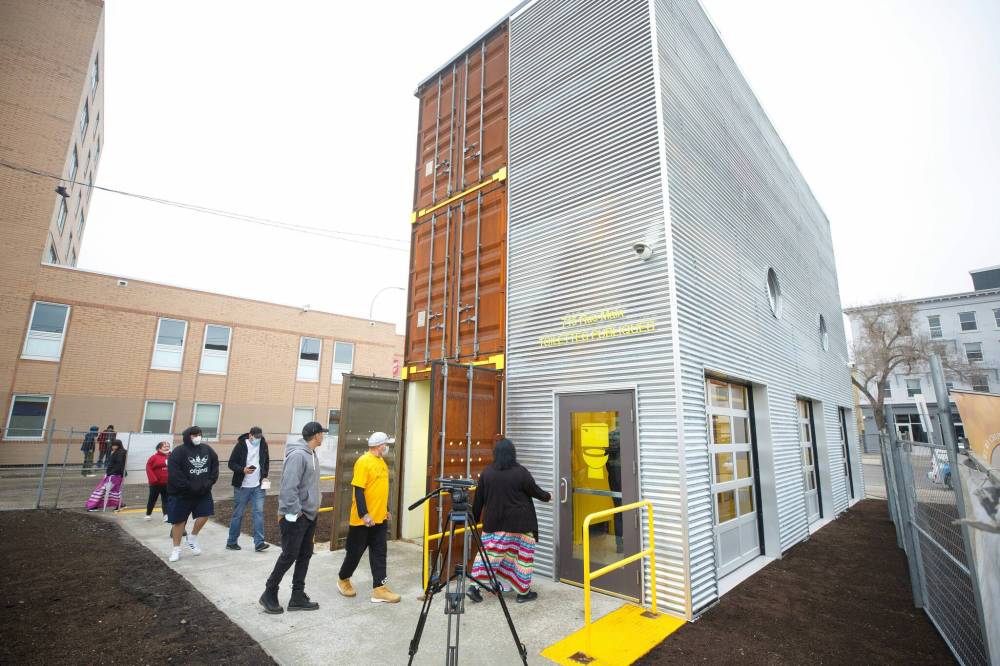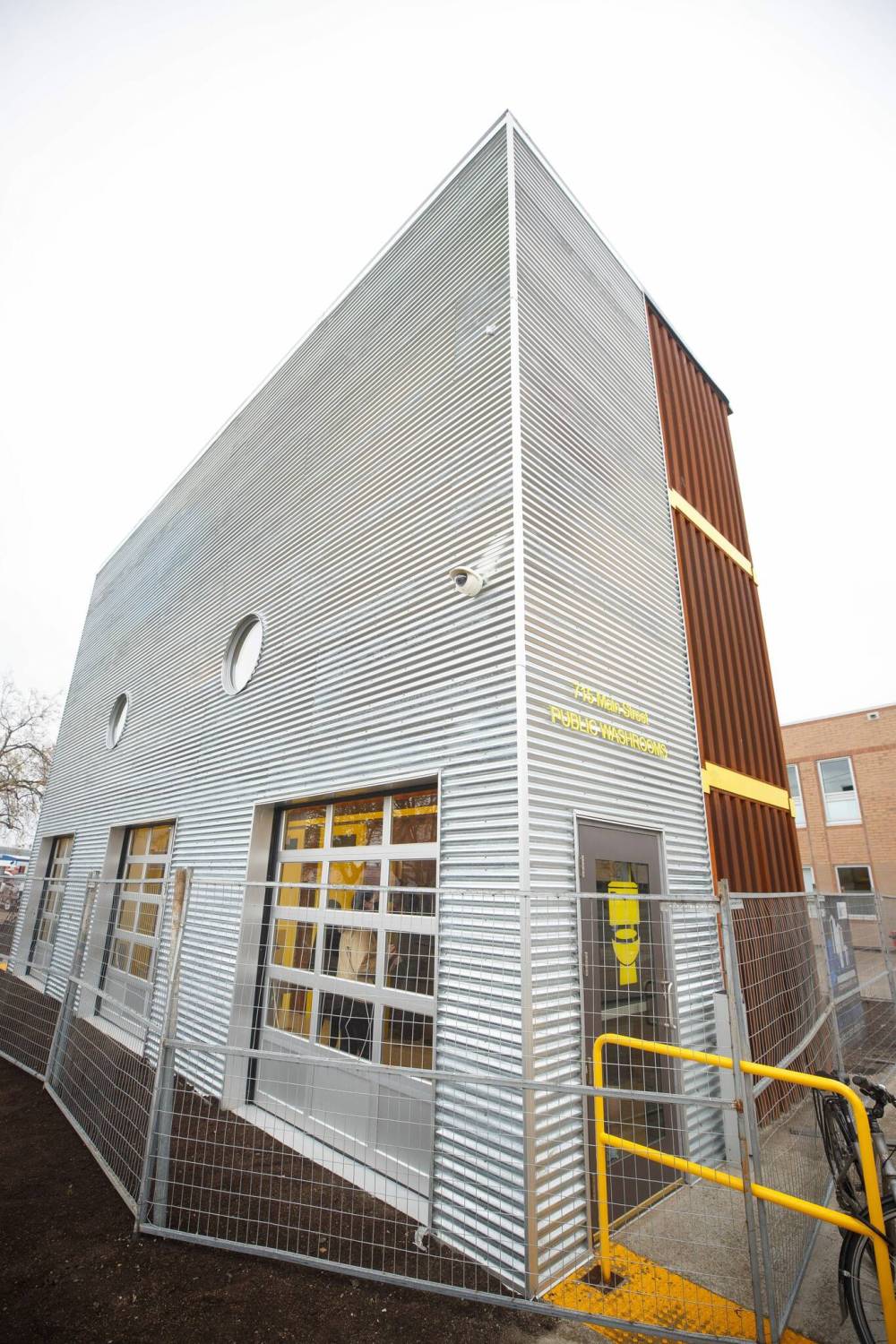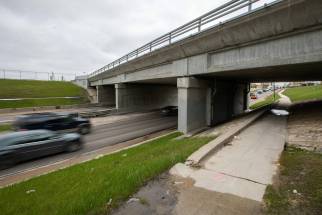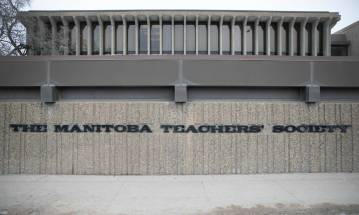Public washroom is better way to go
Read this article for free:
or
Already have an account? Log in here »
To continue reading, please subscribe:
Monthly Digital Subscription
$0 for the first 4 weeks*
- Enjoy unlimited reading on winnipegfreepress.com
- Read the E-Edition, our digital replica newspaper
- Access News Break, our award-winning app
- Play interactive puzzles
*No charge for 4 weeks then price increases to the regular rate of $19.00 plus GST every four weeks. Offer available to new and qualified returning subscribers only. Cancel any time.
Monthly Digital Subscription
$4.75/week*
- Enjoy unlimited reading on winnipegfreepress.com
- Read the E-Edition, our digital replica newspaper
- Access News Break, our award-winning app
- Play interactive puzzles
*Billed as $19 plus GST every four weeks. Cancel any time.
To continue reading, please subscribe:
Add Free Press access to your Brandon Sun subscription for only an additional
$1 for the first 4 weeks*
*Your next subscription payment will increase by $1.00 and you will be charged $16.99 plus GST for four weeks. After four weeks, your payment will increase to $23.99 plus GST every four weeks.
Read unlimited articles for free today:
or
Already have an account? Log in here »
Hey there, time traveller!
This article was published 20/05/2022 (1297 days ago), so information in it may no longer be current.
Back in 2018, Winnipeg architect Wins Bridgman of Bridgman Collaborative Architecture saw his idea, a decade in the making, come to life: a pop-up public washroom in Winnipeg’s downtown.
It was a canny campaign, executed in partnership with Downtown BIZ and Siloam Mission, that illustrated a dire human-rights need by actually providing a solution.
Flush with excitement

Posted:
A long-awaited, permanent public washroom will soon provide vulnerable Winnipeggers “a place to go” downtown.
Now, the idea has gone from pop-up to permanent. As of May 30, a public washroom at 715 Main St., next to Circle of Life Thunderbird House, will open for daily public use from 7:30 a.m. to 5:30 p.m.
Bridgman designed this structure, known as Amoowigamig. Like the bright-orange pop-up before it, it’s a highly visible building with highlighter-yellow accents, and has a host of safety features, such as alarms that can be triggered from stalls, security cameras outside, and a pair of urinals outside the building, which is also a safety consideration: “The reason people go through the indignity of going (to the bathroom) outside is sometimes because there’s no washroom but also because it might (seem) safer,” Bridgman told the Free Press.
Staff members from Ma Mawi Wi Chi Itata Centre will provide harm reduction supplies and fresh water to folks using the facilities. A public sink area will also allow users to wash up.
In other words, the permanent structure bears little resemblance to the portable washrooms the city had set up in 2020 which, according to a report, were subject to vandalism, theft and structural damage.
A public washroom is a long overdue addition to the streetscape of downtown Winnipeg. Access to clean, safe washroom facilities are a need everyone has, but many North American cities — Winnipeg included — have steadily moved away from public “comfort stations” over the past few decades after they became sites for drug use and violence, rendering them useless and unsafe for their intended purpose. These public washrooms were poorly maintained and unstaffed and, subsequently, torn down.

The vanishing North American public bathroom has been a subject of debate, discussion and study for years. It’s not like this elsewhere: London tube stations often have a public bathroom. In Japan, an art project called The Tokyo Toilet saw 17 public washrooms be redesigned — in the vein of Winnipeg’s annual warming hut design competition — so that they are not only functional, but beautiful.
In many cities across North America, meanwhile, the alternatives are using the facilities of businesses — who often designate their washrooms as “employee use” or “customer use” only — or going in the street. For our most vulnerable residents experiencing homelessness, the added indignity of having nowhere to take care of basic, everyday, biological functions is not only demoralizing, it’s dehumanizing.
The opening of a new permanent public washroom in Winnipeg is something to celebrate. But it’s not a simple case of “build it and they will go” — cleanliness and safety will be paramount, and that will require staffing and money. The next challenge will be seeing if it can be the one thing in downtown Winnipeg that doesn’t close at 5:30 p.m. Ma Mawi Wi Chi Itata Centre hopes fundraising will allow the washroom to expand to 24-7 service, and there is infrastructure for the site itself to host advertising, which would require an exemption to city bylaws.
Anything to move this project forward is a good thing. Its success will not only help restore dignity to our community members, but will hopefully inspire other such permanent facilities to open in the future.






